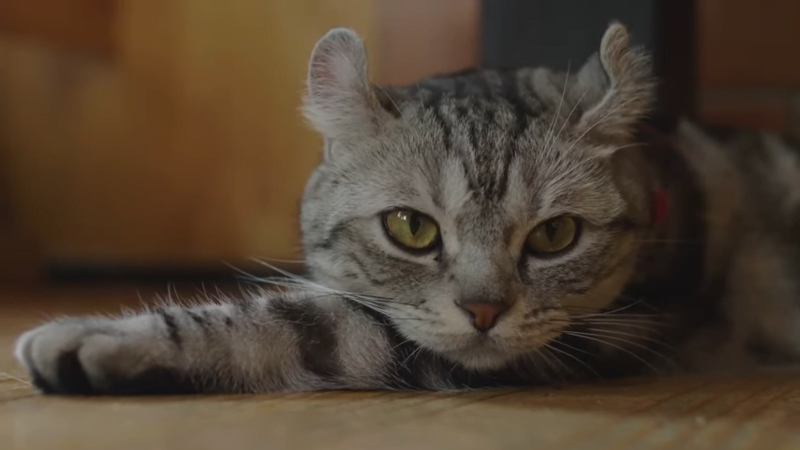No products in the cart.
Melatonin for cats has gained popularity as a natural remedy for various health conditions. It is frequently used as a natural treatment for a variety of health issues in cats like stress, anxiety, and sleep difficulties. Melatonin is generally considered safe for cats, but it’s important to follow the proper dosage, be aware of potential side effects, and safety concerns. In this article, let’s discuss the feline melatonin dosage, liquid melatonin for cats, and whether can melatonin hurt cats.
What Is Melatonin for Cats?
Melatonin is a hormone responsible for regulating your body’s sleep cycle. It’s also associated with other health benefits. It’s produced naturally in the body, and it helps us feel sleepy at night and alert during the day. It is vital for regulating the sleep cycle and other bodily functions, such as mood and immune system function. Melatonin for cats is a natural remedy similar to CBD cats for various health conditions in humans and animals, including cats.
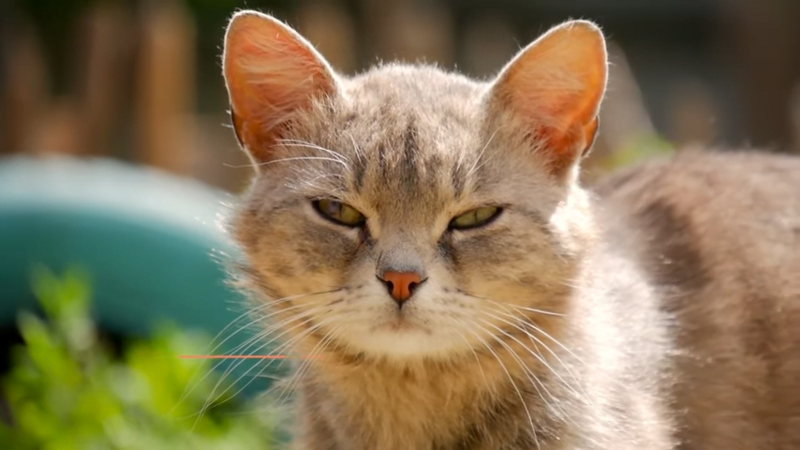
How Melatonin Can Improve Your Cat’s Health
Melatonin can help cats in many ways, including reducing anxiety and promoting relaxation, aiding in sleep and relaxation, and treating various health conditions. These benefits make melatonin an attractive option for cat owners who want a natural solution to their pet’s health problems.
The most significant benefit of melatonin for cats is its ability to reduce anxiety and promote relaxation. Melatonin can help to calm them down and lower their anxiety.
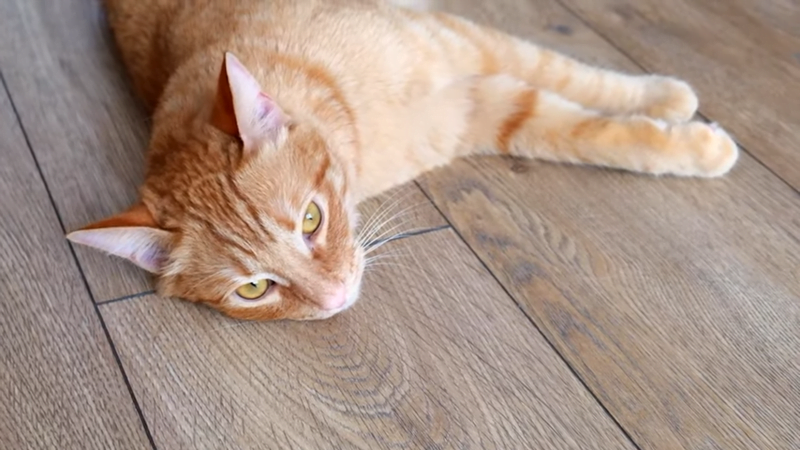
Benefits of Melatonin for Cats
Melatonin can help cats in many ways, such as:
- Treatment for anxiety and stress: Melatonin can reduce anxiety and promote relaxation in cats. It can be particularly helpful during stressful situations, such as travel or vet visits.
- Aid in sleep and relaxation: Melatonin can promote a sense of calm and help cats fall asleep more easily. It can be particularly helpful for cats that are restless at night.
- Treatment for health issues: Melatonin has been used to treat cats who suffered health issues like hair loss, hyperthyroidism, and urinary tract issues.
What Are the Potential Side Effects and Safety Concerns of Melatonin in Cats?
Melatonin is typically safe for cats, however, there are some possible side effects and safety issues to be aware of. These include:
- Upset stomach: Melatonin can sometimes cause gastrointestinal distress, such as nausea or vomiting, in cats.
- Lethargy: Some cats may become lethargic or more tired than usual after taking melatonin.
- Increased heart rate: Melatonin can cause an increased heart rate or palpitations in cats, although it is uncommon.
- Increased urination: In some cases, melatonin may pose a problem for felines with urinary tract issues due to increased urination in cats.
- Interaction with other medications: Melatonin can interact with other medications your cat is taking, so it’s crucial to go to the vet before using it.
- Risks of overdose: Overdose can occur if too much melatonin is given to a cat. Vomiting, diarrhea, or disorientation are possible overdose warning signs.
When Should I Consider Giving My Cat Melatonin, and Under What Circumstances?
In some situations, melatonin may be a supplement for cats, including:
- Anxiety and stress: If your cat experiences anxiety, travel anxiety, or vet visit anxiety, melatonin could be considered as a natural supplement to help alleviate these symptoms.
- Sleep disturbances: If your cat has difficulty falling or staying asleep, melatonin may be considered as a supplement to promote relaxation and aid in sleep.
- Health conditions: If your cat has health conditions like hair loss, hyperthyroidism, or urinary tract issues, melatonin may be recommended in the treatment regimen.
Precautions with Melatonin Use in Cats
Melatonin use in cats requires some precautions to ensure safety and effectiveness.
- Consult with a veterinarian: Before administering your cat melatonin, it’s imperative that you get their opinion. Melatonin’s suitability for your cat’s medical needs and conditions can be determined by the doctor.
- Proper dosage: Melatonin dosage for cats varies depending on the cat’s weight and other factors. It’s crucial to follow the dosage instructions provided by the veterinarian or on the product label.
- Monitoring for side effects: Melatonin is safe for cats to consume, but any negative effects like nausea, drowsiness, a raised heart rate, or frequent urination, must be monitored.
- Avoid overdose: Overdose on melatonin is possible if not administered correctly. It’s crucial to give melatonin to your cat at the same time each day and start with a lower dose, gradually increasing it if necessary.
- Avoid interactions with other medications: It is crucial to inform your veterinarian if your cat is taking any other medications before starting melatonin, as it can potentially interact with them.
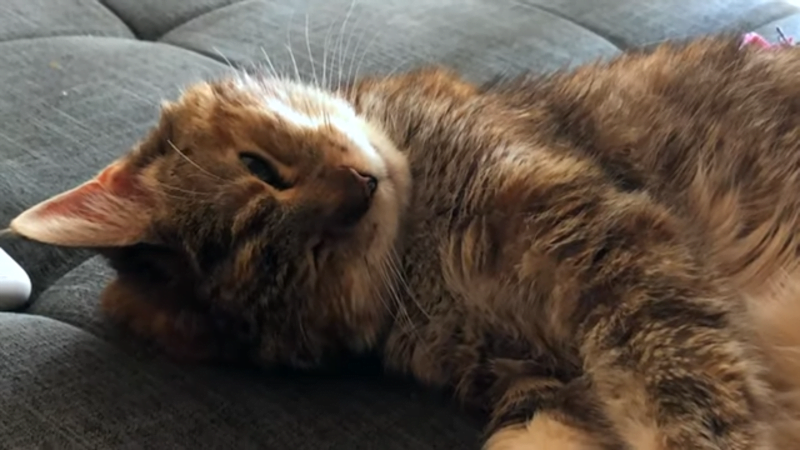
Dosage of Melatonin for Cats
The appropriate dosage of melatonin for cats depends on your cat’s weight and other factors. In general, the dosage for cats is as follows:
- Under 5 pounds: 0.5 mg
- 5-10 pounds: 1 mg
- 10-15 pounds: 1.5 mg
- Over 15 pounds: 3 mg
It’s important to remember that these are suggestions, and you should go to the vet before providing melatonin to your cat. The dosage may change based on the requirements of your cat, according to the vet.
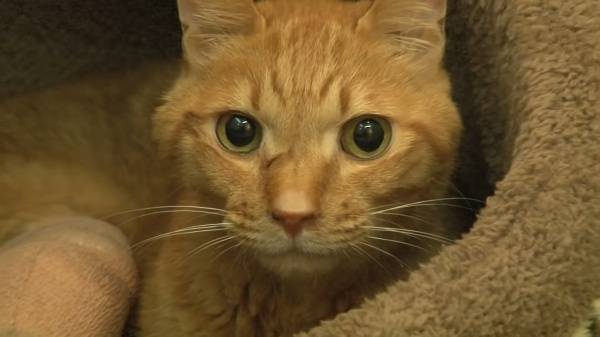
Can You Give Your Cat Too Much Melatonin?
It is possible to give your cat too much melatonin. Taking too much melatonin can result in vomiting, tiredness, increased heart rate, frequent urination, and it even causes seizures or comas in some cases.
How Often Should You Give Your Cat Melatonin?
The frequency you should give melatonin to your cat depends on the dosage prescribed by your veterinarian. Melatonin is typically administered once daily, ideally at the same time each day. However, the frequency and amount of melatonin may change according to the weight and particular health status of your cat.
Tips for Successfully Giving Your Cat Melatonin
Giving your cat melatonin can be challenging, but it can be done successfully by using a liquid form, starting with a lower dose, giving it at the same time every day, mixing it with food or water, using a syringe if needed, and being patient. These tips can help you give your cat melatonin and enjoy its benefits.
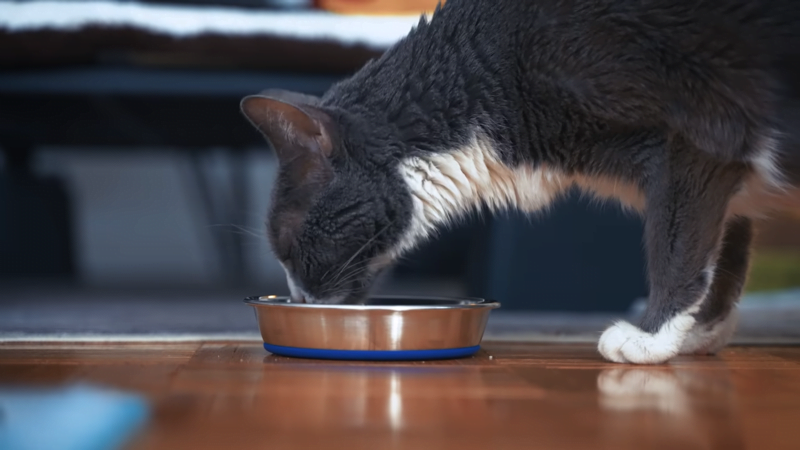
Conclusion
Melatonin can be a useful natural solution for cats, offering a variety of advantages such as calming anxiety and stress, promoting relaxation and sleep, and treating several health conditions. Nonetheless, it is crucial to bear in mind the probable side effects and safety issues associated with melatonin and to solely provide it to your cat under veterinary guidance. With appropriate administration and dosing, melatonin can enhance your cat’s overall health and well-being.
I am Nelson Cooper, I pursue my passion for writing and my belief is that cats love humans. I enjoy traveling and have a deep appreciation for the beauty of nature, as well as a soft spot for animals, particularly cats.


